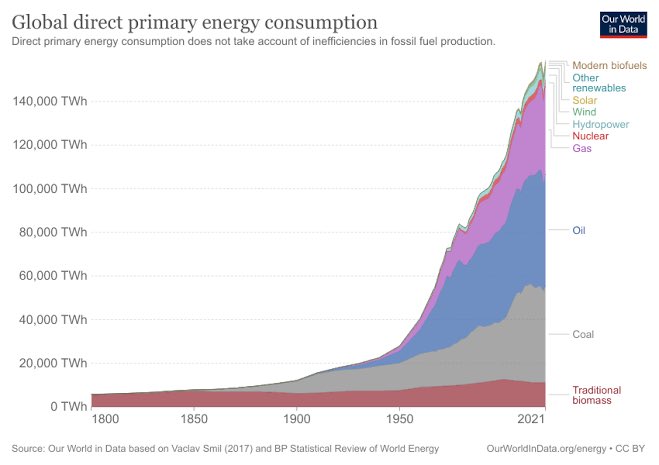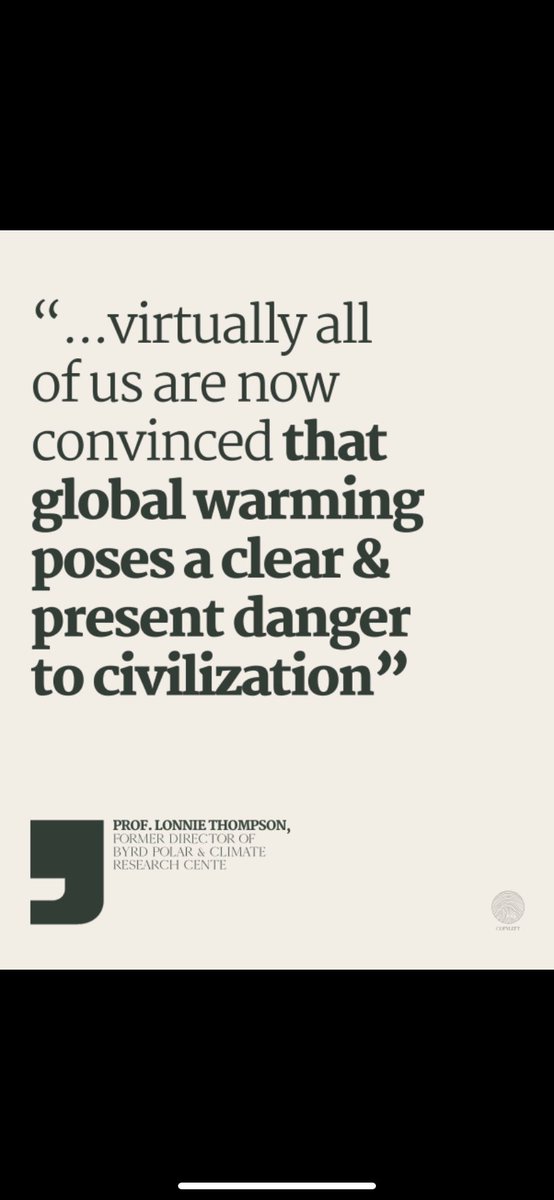Some of my favourite threads and articles from the last week-ish, roughly in order of (1) problem -> (2) way forward -> (3) momentum:
(1) Problem: our growth-based economies are at the heart of our ecological crises
🧵 (1/16)
(1) Problem: our growth-based economies are at the heart of our ecological crises
🧵 (1/16)

"The fact is that we cannot keep growing the same cancerous way ‘except solar’. It’s like saying I’m going to switch lung cancer for eye cancer. I mean, still cancer…. we’re getting a brutal lesson this century whether we want it or not."
(2/16)
indica.medium.com/why-solar-wont…
(2/16)
indica.medium.com/why-solar-wont…
“…we must rapidly reduce consumption/destruction of natural resources and associated fossil fuel use. This is only achievable by reversing economic ‘growth’ …. This is not unrealistic or anti-capitalist — it’s counting.”
(3/16)
medium.com/@JacksonDamian…
(3/16)
medium.com/@JacksonDamian…
Green growth isn’t a solution, either:
“the idea of green growth has sustained a don’t worry, everything is going to be okay narrative, becoming a form of macroeconomic greenwashing mobilised to discredit more radical proposals.”
(4/16)
meta.eeb.org/2023/05/03/the…
“the idea of green growth has sustained a don’t worry, everything is going to be okay narrative, becoming a form of macroeconomic greenwashing mobilised to discredit more radical proposals.”
(4/16)
meta.eeb.org/2023/05/03/the…
(2) Way forward: we must recognise that this isn’t a simple problem we face, our opponents are big, and many:
(5/16)
(5/16)
“in this struggle we are contesting not only fossil capital and the governments that support it. We are fighting against all capital and, perhaps, most of the people it employs.”
(6/16)
theguardian.com/commentisfree/…
(6/16)
theguardian.com/commentisfree/…
If the environmental movement is to have a chance at succeeding, it must unite with the labour movement globally and foreground policies that release labour from the grip of capital:
(7/16)
(7/16)
https://twitter.com/jasonhickel/status/1653743870453116930?s=46&t=eoi37_UjXlyk1Cf-Oei1yQ
And ‘decommodify survival’ through provision of Universal Public Services
(8/16)
jasonhickel.org/blog/2023/3/18…
(8/16)
jasonhickel.org/blog/2023/3/18…
We also need to change the political framing from living in an “economy” to living in a society. Currency issuing governments are not households that have a budget to manage. Money is simply a medium of exchange, not a rare resource:
(9/16)
(9/16)
https://twitter.com/ragesheen/status/1654216835980566528?s=46&t=eoi37_UjXlyk1Cf-Oei1yQ
(3) Momentum: thankfully we are starting to see some growth-critical discourse by world leaders, Irish President Michael D Higgins spoke on the topic last week
(10/16)
irishtimes.com/politics/2023/…
(10/16)
irishtimes.com/politics/2023/…

And last week Nina L. Smolyer gave a talk that included #degrowth at the UN:
(11/16)
(11/16)
https://twitter.com/ninalsmolyar/status/1651699495237832709?s=46&t=eoi37_UjXlyk1Cf-Oei1yQ
There is also a 3 day ‘Beyond Growth’ conference in Brussels beginning on the 15th May. It is “an initiative of 20 MEPs from five different political groups … with the support of the President of the European Parliament”
(12/16)
beyond-growth-2023.eu
(12/16)
beyond-growth-2023.eu

Let’s hope with all of this momentum we get to that 25% social tipping point that we need for these topics to go mainstream (this is an older article, but still good!):
“Social convention, which has for so long worked against us, can if flipped become our greatest …
(13/16)
“Social convention, which has for so long worked against us, can if flipped become our greatest …
(13/16)
… source of power, normalising what now seems radical and weird. If we can simultaneously trigger a cascading regime shift in both technology and politics, we might stand a chance.”
(14/16)
theguardian.com/commentisfree/…
(14/16)
theguardian.com/commentisfree/…
Because things have changed quickly in the past, and they can do so again (another oldie but goldie):
“From 1942 until 1945, the manufacture of cars was banned. So were new household appliances and even the construction of new homes. Tyres and gasoline were strictly …
(15/16)
“From 1942 until 1945, the manufacture of cars was banned. So were new household appliances and even the construction of new homes. Tyres and gasoline were strictly …
(15/16)
… rationed; meat, butter, sugar, clothes and shoes were also limited. Rationing was considered fairer than taxing scarce goods: it ensured everyone received an equal share.”
(16/16)
theguardian.com/commentisfree/…
(16/16)
theguardian.com/commentisfree/…
• • •
Missing some Tweet in this thread? You can try to
force a refresh

 Read on Twitter
Read on Twitter









